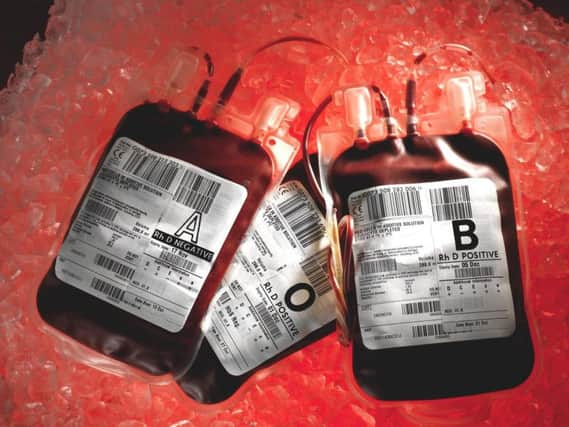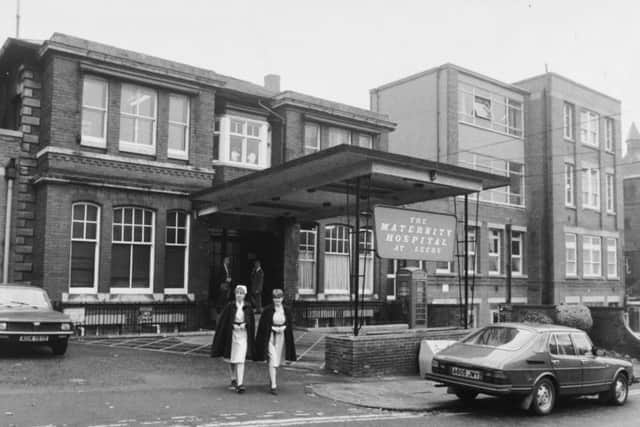Leeds man tells Infected Blood Inquiry of wife's death after hospital blood transfusions


Graham Binks, of Leeds, told the Infected Blood Inquiry today how his wife Margaret went from "perfectly healthy" to terminally ill in under two years and died in 1980, aged 43.
Mr Binks met his wife when he was 18 and she was 28 while they worked at the same Leeds primary school.


Advertisement
Hide AdAdvertisement
Hide AdThe inquiry heard how after the birth of their first son in 1972, Margaret received blood transfusions and became jaundiced, staying in Leeds Maternity Hospital in Hyde Terrace for three weeks.
After the birth of their second child in 1974, she again had blood transfusions and stayed in hospital "longer than usual", the regional hearing of the inquiry at the Crowne Plaza Hotel was told.
When asked by junior counsel to the inquiry, Sarah Fraser Butlin, Mr Binks agreed that he "couldn't say for sure" that his wife was affected by the transfusions, but said there was "certainly no other risk factors" and that she was "never healthy again" after their second child.
She was diagnosed with chronic aggressive hepatitis, later staying in St James's Hospital for six weeks before being discharged in 1975.
Advertisement
Hide AdAdvertisement
Hide AdMargaret continued to deteriorate, "becoming more and more tired and exhausted" until May 1979, when she was taken to hospital again and on release given months to live.
Mr Binks told the inquiry: "She was a very brave and resilient person and we all know that we are mortal, but an end date concentrated the mind and the sensation for both of us and other members of the family."
Describing the feeling, he said: "If you imagine you are in the aeroplane and you know it's guaranteed to crash - it's slowly descending, but it's guaranteed to crash. So it's obviously very depressing."
In early 1980 she suffered a haemorrhage and although it was her wish to stay at home, a doctor persuaded her to go to hospital.
Advertisement
Hide AdAdvertisement
Hide AdMr Binks said: "My abiding memory is of my children waving through the window at my parents' house down the road with no idea that they wouldn't see their mother again."
While in hospital, Margaret's varices exploded and she died on January 25.
Speaking about telling his five and seven-year-old sons the news, Mr Binks recalled: "It was far and away the hardest thing I ever had to do.
"They knew that their mum was ill but they had no inkling of how serious it was."
Advertisement
Hide AdAdvertisement
Hide AdPrompted by Ms Fraser Butlin, he added: "The little white lie I told was that she [Margaret] told us to be like the Three Musketeers.
"I sat them one each on my knee and said: 'All for one, and one for all'."
Mr Binks also described the "devastating" financial impact of her death, comparing it to "a torpedo through the ship".
And of the emotional fallout, he said: "You never fully recover from the death of a partner. Even 39 years on, I'm no stranger to tears."
Advertisement
Hide AdAdvertisement
Hide AdBut he said it "never occurred to me that infected blood affected this".
In October last year he contacted Leeds Teaching Hospitals NHS Trust to see if he could obtain his wife's medical records.
He told the inquiry that he received no response for six months, but after telling the Trust that the reason he needed the information was because he was due to give evidence, a letter came to him on May 13 this year by special delivery that said no records were available.
Public hearings of the Infected Blood Inquiry, which has already sat in London and Belfast, restarted today at the Wellington Street hotel, which is being used as a base for those from the north of England giving evidence about the scandal.
Advertisement
Hide AdAdvertisement
Hide AdAround 2,400 people are thought to have died after thousands of patients were infected with viruses such as HIV and hepatitis C through contaminated blood products between the 1970s and 1980s.
Many victims had or have haemophilia, a blood-clotting disorder, and relied on regular injections of clotting agent Factor VIII, which was made from pooling human blood plasma.
Britain was running low on supplies of Factor VIII so imported products from the USA, where prison inmates and others were paid cash for giving blood.
In his opening remarks this morning, inquiry chairman Sir Brian Langstaff said: "Why has the inquiry come to Leeds?
Advertisement
Hide AdAdvertisement
Hide Ad"The answer is simple. It is a matter of principle. This is a UK-wide inquiry – indeed, the first UK-wide statutory public inquiry to deal with how it came about that so many died, so many were infected, and so many more affected by their suffering because blood and blood products caused infections which were not prevented, or not quickly or sufficiently prevented.
"What has been called by many, in a phrase which deserves thinking about rather than simply repeating, the greatest treatment disaster in the history of the NHS."
Former High Court judge Sir Brian vowed that the inquiry would be "frightened of no-one in the conclusions it may draw".
The first person to give evidence in Leeds was John Cornes, from the Birmingham area, who told how three of his brothers and one of their wives died after getting HIV following the siblings' routine haemophilia treatments.
Advertisement
Hide AdAdvertisement
Hide AdAnother brother who was infected with hepatitis C has also since died, with Mr Cornes telling the inquiry the virus was a "main contributor".
Mr Cornes, who was also infected with hepatitis C, described how the loss of three brothers in quick succession during the early- to mid-1990s led to the break-up of his marriage and of how he suffered a mental breakdown in 2011.
He also told of the stigma of such viruses at that time, with people in the area they then lived referring to them as "the AIDS family", and how some relatives had changed their surnames to avoid being identified.
Referring to one of his brothers, who was the focus of tabloid newspaper attention, he said: "You felt as if there were people with nooses ready to lynch him."
